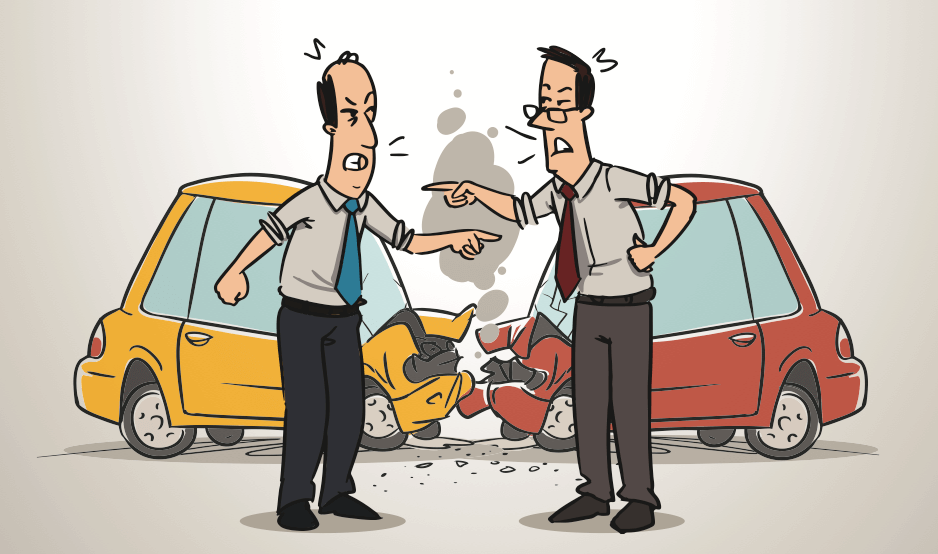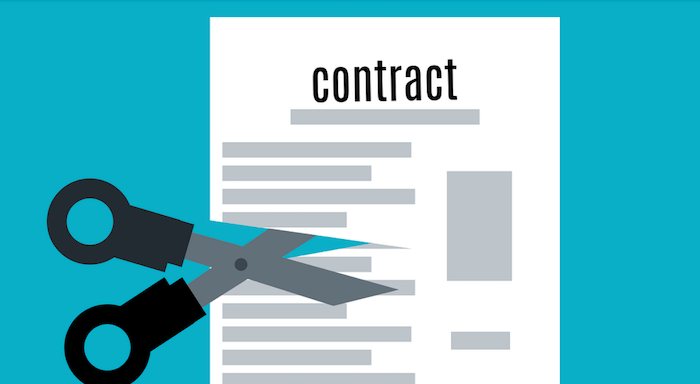If you enjoyed our last installment of the best GEICO commercials you should enjoy these gems just as much, if not more!
What if Other Driver Won’t Share Insurance Information?
It is important to protect yourself at the time of an accident to avoid out of pocket expenses that you may not be responsible for. Unfortunately, not all drivers are as cooperative as you might like them to be.
Let’s look at the information you should and should not share, why someone may refuse to share their insurance information with you and what you can do to protect yourself, should this happen to you.
What information should be shared at the time of an accident?
Following an accident, drivers should exchange names, vehicle information, and insurance information including the company’s name, policy number and claims phone number. If you find yourself in a situation where authorities do not respond to the scene of an accident, the National Association of Insurance Commissioners recommends only revealing this necessary information to avoid the potential for identity theft. If an officer responds, it is helpful to request the incident number to provide to your insurance company so that they may get access to a copy of the accident report, as well.
Why won’t the other party share this information?
There are a variety of reasons why another party may refuse to disclose necessary insurance information at the time of a claim. Common examples include:
- No auto insurance
- Driving someone else’s car without permission
- Driving a stolen car
- No driver’s license or suspended license
- Driving while under the influence of alcohol or drugs
- Poor driving record
- High claims history
Unfortunately, it is also possible that someone may flee the scene of an accident before you ever have a chance to speak with them at all.
What can I do to protect myself?
1. Call the Police – It is always best to call authorities to report an accident. Depending upon state and local laws, an officer may or may not respond unless there are injuries, but by reporting an accident a dispatcher will take information related to the accident and an incident report can be filed.
2. Gather Information – Common information authorities ask for may include license plate numbers of the involved parties, driver’s license information, as well as insurance information, a description of the damages, how the accident occurred and if there were any injuries. It is important to remain calm and provide as much information as possible.
Technology is also helpful at the time of an accident. If you are able, take as many photos as possible of the accident, including: license plate of other party, damage to your vehicle, damage to the other party’s vehicle, any distinguished markings or modifications, etc. It is also helpful to take photos of your surroundings, such as intersections, road signs and any landmarks which can help identify where and how the accident occurred. If you do not have access to a smart phone, write down as much information as possible, including a drawing of the scene.
If you should happen to be involved in a hit & run (or the other party flees the scene of the accident before you are able to speak to them) try to provide as many details about the other vehicle as possible, including a license plate number. The more information you can provide will help authorities track down the driver after an accident.
3. Call Your Insurance Company – You should report the accident to your insurance carrier as soon as possible following an accident. Even if you feel you were not at fault, your insurance agreement allows for your company to act on your behalf to recover damages made to your vehicle and work with the other party or law enforcement agency to ensure you are compensated for a loss.
4. Gather Witnesses – If there are witnesses at the scene or in your vehicle, asking them to write a personal statement or to provide their contact information can also help the insurance company determine fault and resolve your claim more quickly.
5. Never Put Yourself at Risk – Lastly, it is important to remember that in this type of situation, there may be a good reason why the other driver is refusing to hand over their information. You should never put yourself in danger to attempt to collect the other party’s information. Never escalate the situation and put yourself at risk; always rely on your insurance agency, a lawyer or the local law enforcement agency to get this information.
Accidents can certainly be stressful, and one hopes that they will never be involved in a situation where another party refuses to provide their information. By remaining calm and reporting as much information as possible to authorities and your insurance company, it is possible to have a claim resolved much faster and efficiently.



